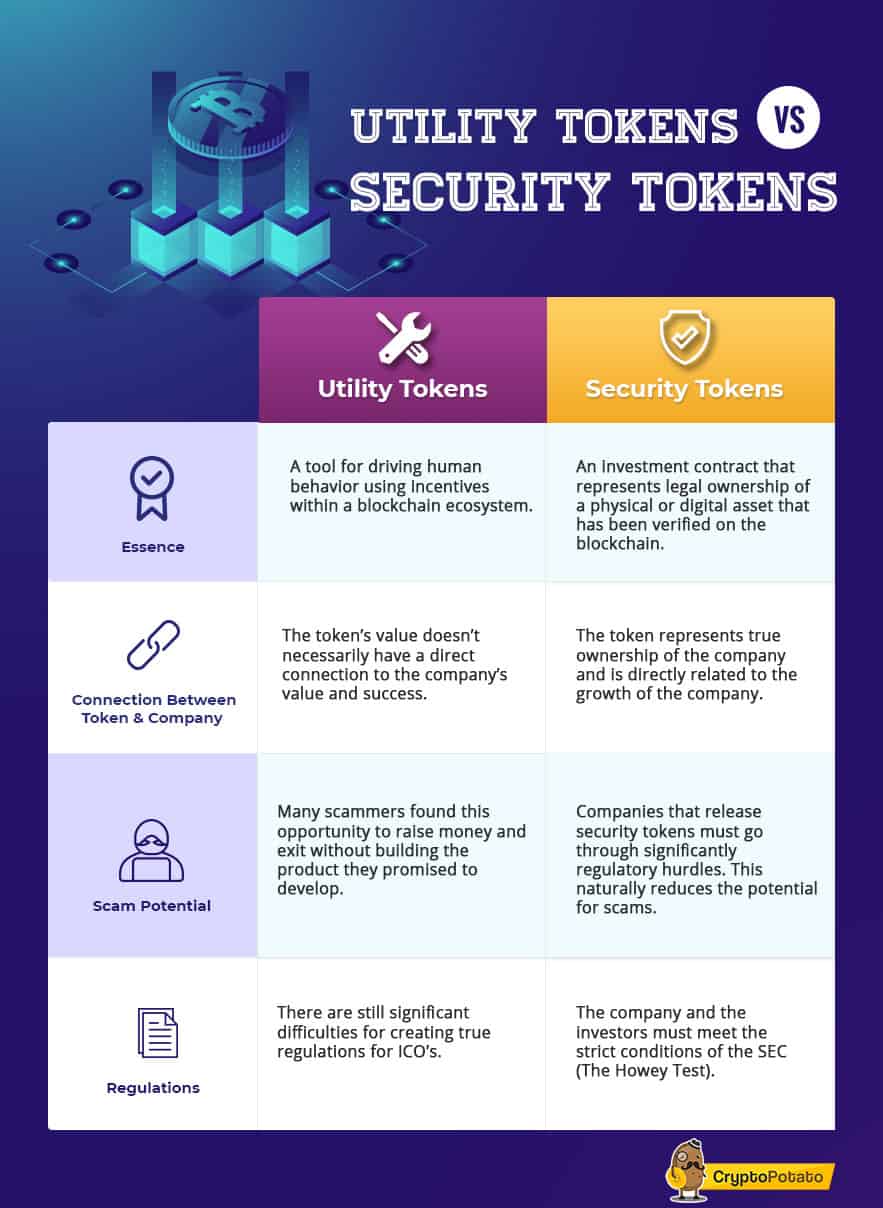Security Tokens And Utility Tokens Understanding The Key Differences
In the world of cryptocurrencies, you’ve likely come across the terms "security tokens" and "utility tokens." While both types of tokens are used in the crypto space, they serve different purposes and have distinct characteristics. In this article, we’ll delve into the world of unique security tokens and utility tokens, exploring their key differences and what sets them apart.

- What Are The Best Privacy Coins For Anonymous Transactions
- Unlocking The Power Of Secure Crypto Storage: The Vital Role Of A Crypto Custodian
- The Democratization Of Lending: How Crypto Is Revolutionizing Peer-to-Peer Finance
- Embracing The Crypto Revolution: Top Crypto-Friendly Banks For 2024
- The Heartbeat Of Blockchain: Unpacking The Power Of Consensus Mechanisms
Imagine you’re at a music festival, and you want to buy a souvenir t-shirt. You can buy it with cash, or you can use a special festival token that’s redeemable only for merchandise. In this scenario, the festival token is like a utility token – it’s designed to provide access to a specific product or service.
Now, imagine you’re an investor looking to buy a stake in a company. You can purchase shares of the company’s stock, which gives you ownership and potential dividends. In this case, the shares are like security tokens – they represent a claim on the company’s assets and are subject to various regulations.
Unique security tokens are digital assets that represent ownership in a company or a project. They’re similar to traditional securities, such as stocks and bonds, but are issued and traded on blockchain networks. Security tokens are designed to provide investors with a stake in the company’s profits, dividends, or other forms of returns.
On the other hand, utility tokens are designed to provide access to a specific product or service. They’re often used to fund the development of a project or a business, and their value is tied to the success of the project. Utility tokens can be redeemed for goods or services, such as the festival token example above.
So, what are the key differences between security tokens and utility tokens? Here are a few:
-
Purpose: Security tokens represent ownership in a company or a project, while utility tokens provide access to a specific product or service.
-
Regulation: Security tokens are subject to various regulations, such as the Securities Exchange Act of 1934, while utility tokens are not.
-
Investor expectations: When you buy a security token, you expect to receive dividends or other forms of returns. With utility tokens, you expect to receive access to a product or service.
-
Risks: Security tokens carry more risks than utility tokens, as their value can fluctuate based on market conditions and the performance of the company.
-
Liquidity: Security tokens are often less liquid than utility tokens, as they’re subject to stricter regulations and may require a holding period before they can be sold.
In conclusion, unique security tokens and utility tokens serve different purposes in the world of cryptocurrencies. While security tokens represent ownership in a company or a project, utility tokens provide access to a specific product or service. Understanding the key differences between these two types of tokens can help you navigate the complex world of crypto investing and make informed decisions about your investments.
Whether you’re a seasoned investor or just starting out, it’s essential to do your research and understand the risks and benefits associated with each type of token. By knowing the difference between security tokens and utility tokens, you can make more informed decisions about your investments and achieve your financial goals.
